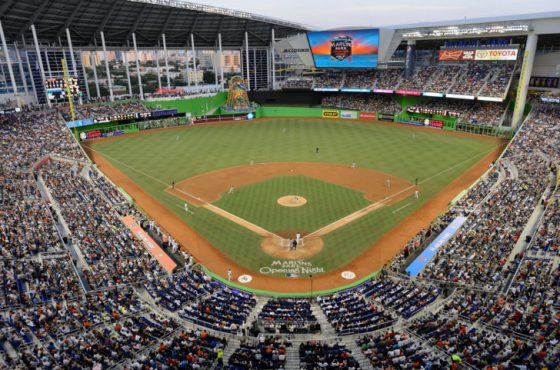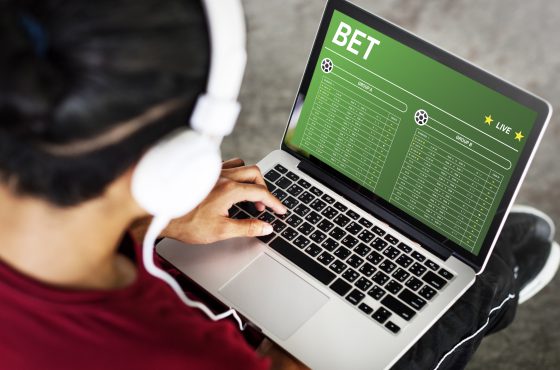Should Major League Sports Take an Integrity Fee?

With a SCOTUS decision forthcoming on the future of sports betting, the NBA and MLB are lobbying for an integrity fee. But is it a good idea?
It’s March 2018. All eyes are on the highest court in the land. In the coming weeks, the United States Supreme Court is expected to hand down a ruling in a case that will have monumental ramifications across the country—Murphy v. National Collegiate Athletic Association, (formally, Christie v. National Collegiate Athletic Association). Here’s the timeline, if you aren’t up to speed:
- In 2011, New Jersey voters vote overwhelmingly in favor of a state constitutional amendment that would permit sports gambling.
- The next year, the NJ State Legislature enacts the Sports Wagering Act, allowing sports wagering at New Jersey casinos and racetracks.
- Then in August 2012, the five major sports leagues—NCAA, NFL, NBA, NHL and MLB—sue under PASPA (the federal sports betting ban) to prohibit the law from coming to fruition. The United States Department of Justice later joins the Big Five in a case colloquially known as Christie I. Their argument? That legalized sports gambling negatively impacts the integrity of the Leagues.
- Then in February 2013, Judge Michael A. Shipp of the New Jersey District Count rejects the state’s argument in favor of the leagues, citing an indisputable link “between legalized gambling and harm” to the major league sports organizations.
- The state follows up with an appeal to the Third Circuit, where the District ruling is upheld in a 2-1 split decision.
- Fast forward to 2014. New Jersey Senator Raymond Lesniak revises the 2012 bill to repeal aspects of New Jersey’s state laws. After an initial veto, Gov. Christie signs the bill and it passes into law.
- In November 2014, the five leagues follow with another suit against the New Jersey, creating Christie II. Again, the Courts rule in favor of the leagues.
- Then, in October 2016 the state files a new appeal. This time, the Supreme Court agrees to hear the case by June 2017.
That brings us to now. With the Court expected to hand down a ruling in the next few weeks, many are wondering what the impact will be on the betting industry and, more importantly, the five major North American sports leagues.
With the memories of Pete Rose and the Black Sox Scandal of 1919 firmly imprinted in the American sports consciousness, it’s easy to think the games are too susceptible to fixing. In response to this valid concern, the NBA and MLB have been lobbying in favor of a so-called integrity fee.
So…
What is a sports betting integrity fee?
The brainchild of the NBA and MLB’s sports betting lobby, integrity fees are basically taxes on legal sports betting. As proposed, integrity fees would tax handle at a one percent rate, which would go directly into the pockets of the leagues.
For those who don’t know, handle refers to the amount of money placed on the front end of a wager (how much the bettor puts down). Revenue, on the other hand, is how much sportsbooks hold from the total amount wagered. Historically, this comes out to about five percent handle for sportsbook operators.
So, the NBA and MLB, in an attempt to profit from the proliferation of sports betting in the US, are lobbying for a cut in the action. The proposed fee would transfer money from sportsbooks to the leagues themselves.
The concept first appeared in America in the state of Indiana. Then the NBA followed suit by declaring the fee its preferred policy at a hearing in New York State. The MLB has since latched onto the idea as well.
At this point, any legislation that does include an integrity fee will be met with fierce opposition from the NBA and MLB.
“Any sports betting legislation must include clear, robust and enforceable protections to mitigate any possible risks to our game,” said MLB in a statement. “The law quickly advancing in West Virginia unfortunately falls short of meeting those standards… We would be happy to work with legislators and the Lottery Commission to improve the current language.” West Virginia is just one state seeking to enact legislation out of nearly a dozen.
But whether the idea ever comes to fruition in America depends on the outcome of the New Jersey case. So much hinges on this decision, it’s hard to accurately say which direction things will go.
But the question remains.
Why should major leagues profit from legal sports betting?
Think about this. In the case that the federal sports betting ban is lifted, major league sports will have to increase the amount of time, money, and energy they spend ensuring that league integrity isn’t compromised. More expansive data monitoring. Stricter protocols for violations. The costs aren’t entirely apparent. Although, there has been talk of studies exploring the impact of sports gambling on league integrity. Obviously with a proliferation of legitimate sports betting, an entirely new market would come out of the shadows allowing the leagues to enact greater integrity controls than they already have. With that comes a need for more money, more jobs even.
So, with the U.S. Supreme Court set to weigh-in, at least a dozen states nationwide are seeking to pass legislations of their own, among them West Virginia. No one wants to get caught with their pants around their ankles. And the NBA and MLB, already in cahoots with Draft Kings (who’s primed to benefit from the repeal as well), have taken a keen interest in swaying the model to not only get a piece of the pie, but to get conditions in place that will help retain “integrity.”
In a document published by sports attorney Brett Smiley via the SportsHandle blog, it outlines the “playbook”—a framework–that the NBA and MLB are seeking to sway legislation that seeks not only a cut of the betting action around their sports, but also provisions in place to help protect them. Beyond background checks for all employees of sportsbook operators involved in wagers on the MLB and NBA, those operators would need to “prohibit athletes, coaches, referees, team owners, employees of a sports governing body or its member teams, and player and referee union personnel from wagering on any sporting event overseen by their sport’s governing body. In determining which persons are excluded from placing wagers under this subsection, operators shall use publicly available information and any lists of such persons that the sports governing body may provide to [regulatory entity)” to help ensure the integrity of the game. They would also look to collect “real-time information on operators’ wagers.”
To add, the leagues would wish to “restrict, limit, or exclude wagering on [their] sporting events by providing” notice. They are also seeking “restrictions on the sources of data and associated video upon which an operator may rely in paying wagers”
The ramifications of legalization will ripple for decades to come, and the leagues have to make sure they’ve got their ducks in a row if they want to maintain a dignified gaming market.
Will the NBA and MLB get what they want?
Not necessarily. As with any potential business partnership, there may be some amount of compromise on the part of the leagues. The reason being that many states are having difficulty swallowing the actual numbers behind that one percent integrity fee.
It may seem like a minor number. But in the long run, one percent of handle adds up in a multi-billion dollar industry. In fact it equates to a tax of between 20 and 25 percent of gross gaming revenue – a higher tax than the state itself plans to charge its operators. There’s also a growing sentiment that such a fee would strangle a future sports betting market. After all it’s the state of New Jersey that sought to capitalize on legal sports betting in the first place. So of course they want to negotiate as much of a cut as they can.
On top of that, many in the gaming and gambling industries believe that integrity regulation is best handled at a state level by state-appointed gaming regulators.
However, more recently three new bills, active in New York, Kansas, and Connecticut, have been introduced with reduced fees among other concessions, suggesting that the leagues are seeking to appease otherwise reluctant states.
Here are the noteworthy deviations from the league model:
- Bets are separated into two tiers, with the leagues given exclusive data rights only for “tier two” wagers, or ones beyond simple outcomes. This would most likely refer to live prop bets and parlays.
- The “integrity fee“ payable to the leagues is reduced from one percent to .25 percent of handle, down from one percent.
- Sports leagues can request betting restrictions but do not have the authority to dictate
Connecticut’s new bill (S 540) was introduced by Senate Finance Revenue and Bonding on Wednesday and is scheduled for a public hearing next Monday. Kansas and New York have already held such hearings (and so has Connecticut, on other bills).
All three states have competing bills on file, as well.
It is no surprise to see a series of bills emerge that try to meet in the middle. The job of lawmakers, after all, is to balance the needs of stakeholders and the general public. It’s just not clear if this is a willing compromise from the leagues or even something that commercial casinos would accept.





